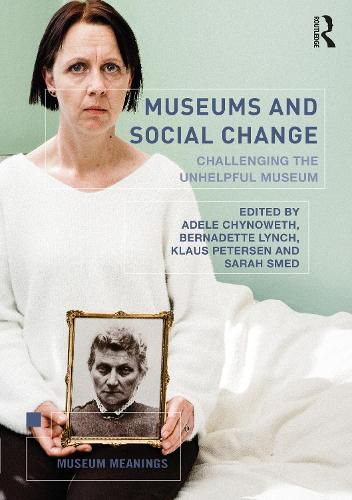Readings Newsletter
Become a Readings Member to make your shopping experience even easier.
Sign in or sign up for free!
You’re not far away from qualifying for FREE standard shipping within Australia
You’ve qualified for FREE standard shipping within Australia
The cart is loading…






Museums and Social Change explores the ways museums can work in collaboration with marginalised groups to work for social change and, in so doing, rethink the museum.
Drawing on the first-hand experiences of museum practitioners and their partners around the world, the volume demonstrates the impact of a shared commitment to collaborative, reflective practice. Including analytical discussion from practitioners in their collegial work with women, the homeless, survivors of institutionalised child abuse and people with disabilities, the book draws attention to the significant contributions of small, specialist museums in bringing about social change. It is here, the book argues, that the new museum emerges: when museum practitioners see themselves as partners, working with others to lead social change, this is where museums can play a distinct and important role.
Emerging in response to ongoing calls for museums to be more inclusive and participate in meaningful engagement, Museums and Social Change will be essential reading for academics and students working in museum and gallery studies, librarianship, archives, heritage studies and arts management. It will also be of great interest to those working in history and cultural studies, as well as museum practitioners and social activists around the world.
$9.00 standard shipping within Australia
FREE standard shipping within Australia for orders over $100.00
Express & International shipping calculated at checkout
Museums and Social Change explores the ways museums can work in collaboration with marginalised groups to work for social change and, in so doing, rethink the museum.
Drawing on the first-hand experiences of museum practitioners and their partners around the world, the volume demonstrates the impact of a shared commitment to collaborative, reflective practice. Including analytical discussion from practitioners in their collegial work with women, the homeless, survivors of institutionalised child abuse and people with disabilities, the book draws attention to the significant contributions of small, specialist museums in bringing about social change. It is here, the book argues, that the new museum emerges: when museum practitioners see themselves as partners, working with others to lead social change, this is where museums can play a distinct and important role.
Emerging in response to ongoing calls for museums to be more inclusive and participate in meaningful engagement, Museums and Social Change will be essential reading for academics and students working in museum and gallery studies, librarianship, archives, heritage studies and arts management. It will also be of great interest to those working in history and cultural studies, as well as museum practitioners and social activists around the world.